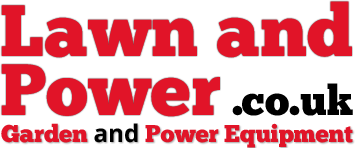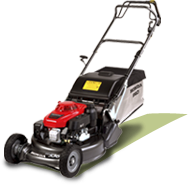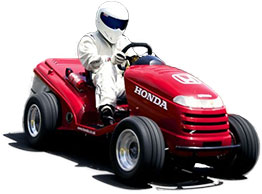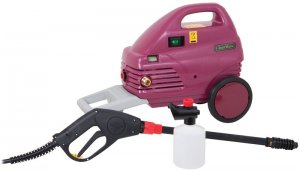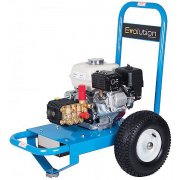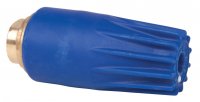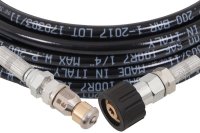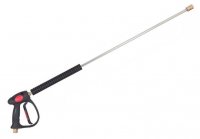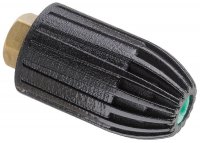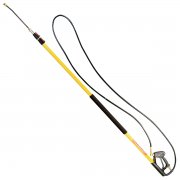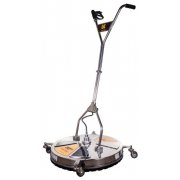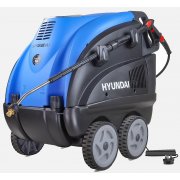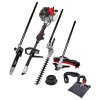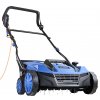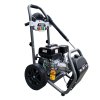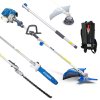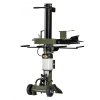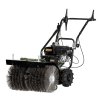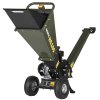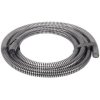What You Need to Know Before Buying a Pressure Washer
Pressure washers have come a long way. Over the last few years the quality has increased as prices have become more affordable. The cleaning ability of a pressure washer is great, removing dirt, grime, and algae quickly, efficiently and effectively. A pressure washer can greatly increase your ability to maintain and clean your property and equipment. If your time is valuable, a pressure washer could be a good investment, but if you get the wrong machine, you will be frustrated and you could waste a lot of time and money.
This guide is to help you understand what a pressure washer does and what you need to look for when deciding to purchase one. If you’re ready to start shopping, check out the pressure washers at Lawnandpower.co.uk Or keep reading to learn more about the following:
- How does a Pressure Washer Work
- Pressure Washer Pumps
- Direct Drive or Belt Drive
- Water Feeds
- Petrol or Electric
- Pressure Washer Accessories
- Choosing the Right Pressure Washer
How a Pressure Washer Works
A pressure washer is actually a fairly simple piece of equipment. A motor or engine turns a pump, pushing water through an orifice (tip). The water accelerates as it goes through the small hole, much like a river flows faster in a narrow gorge, and that fast-moving water is very useful for blasting dirt and grime. The math is quite simple. Each time the pump turns over, a specific volume of water is pushed through the tip. The more water you push through the tip, the more pressure is developed, and therefore more power is required. The higher the pressure, the faster the water moves, and the harder it hits the dirt, removing it from the surface you want to clean.
What to Consider
The two most important considerations when buying a pressure washer are flow rate, which determines how long it takes to do the job or how many jobs you can do in a day; and life expectancy, which determines how many hours of work you can do per pound spent during the life of the machine.
Understanding Ratings
Here are some basic ratings:
Horse Power (HP) Engine (CC)
This is how much power the engine or motor produces. The larger the HP or engine size CC (cubic capacity or size) the more power the unit can produce. This rating is important because it directly relates to how much pressure and volume (flow rate) the pump can produce.
Pounds Per Square Inch (PSI or Pressure)
The pressure generated by a pressure washer is measured in pounds per square inch or PSI. Pressure contributes to the cleaning force. Do you know what PSI you wanted?
Litres Per Minute (LPM or Flow Rate)
The water volume produced by a pressure washer is measured in litres per minute or LPM (flow rate). The volume also contributes to the cleaning force. Did you know the flow rate you needed?
Often consumers are so focused on the PSI rating of the machine, they do not consider the CPU. For example, a pressure washer may have a rating of 2,800 PSI and 2 GPM, giving it a CPU of 5,600. Another pressure washer is rated for 2,400 PSI and 4 GPM. That’s a CPU rating of 9,600. In this example, the lower PSI machine has more than 40% greater cleaning power than the higher PSI machine. The result is that the 2,400 PSI machine will be able to clean an area 40% faster than the 2,800 PSI machine.
Now consider this: A garden hose typically provides 6 GPM at 10 PSI giving it 60 CPU. With a standard spray nozzle attached to the garden hose, you can get around 5 GPM at about 40 PSI generating 200 CPU. We all have seen the difference of how much more effective a simple spray nozzle is at cleaning dirt off surfaces. Trying to clean your driveway with your garden hose spray nozzle generating 200 CPU is fairly ineffective. However, if we take a mid-range pressure washer rated at 2.0 GPM and 2,500 PSI (5,000 CPU), the CPU rating represents a staggering 25 times increase over a typical garden hose spray nozzle.
A commercial pressure washer rated at 4 GPM and 4,000 PSI is an incredible 16,000 CPU. It is not difficult to see the difference in efficiency. However, this is all true within a range. If you have extremely high pressure and low volume, you can cut steel or concrete (water jet cutter), and if you have extremely high volume and low pressure, you have a river. Neither of these would be very good for cleaning your house or driveway.
Pressure washer pumps have pistons and valves similar to a gas engine or an air compressor. On some pumps, the pistons are driven by a wobble plate. On others, the pistons are driven by a crankshaft. Crankshaft-driven pumps are generally built better and will last longer.
Pressure Washer Pumps
This is the part of the pressure washer that receives water from your hose and pumps it through a tip at high pressure. There are several common types of pumps that you will see in commercial and home-owner-type machines. All pressure washer pumps have pistons and valves similar to a gas engine or an air compressor. On some pumps, the pistons are driven by a plate on an angle (wobble plate), and in other cases, the pistons are driven by a crankshaft. Crankshaft-driven pumps are generally built better and will last longer.
Pressure washer pumps are equipped with bypass valves, so that when you let go of the trigger, or when the tip gets plugged, the water will bypass and go back to the inlet side of the pump. If left in this mode for longer than the manufacturer recommends, the water will get hot and cause damage to the pump. On a petrol-powered pressure washer, the pump includes a thermal relief valve that dumps hot water into the bypass loop. Most bypass valves are adjustable so you can dial down the pressure when cleaning sensitive materials
Low-cost pressure washers have pumps with very low life expectancies—some as low as 60 – 100 hours. When buying a pressure washer, make sure you find out the life expectancy of the pump. If the information is unavailable, stay clear because it is very likely that the manufacturer does not want you to know how low it is.
Another very important factor to consider is parts availability. KMS Tools was a warranty/service centre for some low-end brands, however, the lack of parts availability and unreliability of these machines were such a problem that we decided to no longer provide this service.
Before buying your machine, ask where you can get parts if you need them. KMS is often referred to by other retailers as a source for parts and repairs for numerous brands that are pretty much disposable. If you are buying a new machine for $200.00 or less, expect it to be a disposable machine that might last you only one season, and be prepared to spend a lot of time to get the job done.
Direct Drive or Geared Drive
The drive describes how the motor is connected to the pump. Direct-drive systems are most common. The pump is bolted directly to the motor or engine with a shaft coupler. Compared to a gear-drive system, the direct drive requires fewer parts and space, resulting in a more compact design. Direct drive is also considerably more economical than an equivalently rated geared-drive machine.
Gear-drive systems are typically seen on industrial platforms. The pump on a gear-drive unit turns at a much slower speed. Since the pump turns at a lower speed all the pistons and valves in the pump are larger. All this adds up to a cooler running machine that will last considerably longer than an equivalent direct drive version. However, there is slightly more maintenance and considerably more pounds involved (10 – 30% more). If you are using your pressure washer on the job, then you want to consider buying a gear-drive machine. However, an equivalent direct-drive machine will have the same performance for a lot less money.
Water Feeds
When buying a pressure washer, one thing you may need to consider is how you intend to supply water to the unit. In the UK most domestic units will have a flow rate of under 9 LPM and can be supplied from a tap supply. When looking at higher spec units you may need a buffer tank to run the unit from. These will be needed on higher spec units from over 9/20 LPM flow rate, this could be an IBC or even a wheely bin is often used.
Petrol Engine or Electric Motor
On a pressure washer, the engine or motor powers the pump. The more powerful the engine or motor (rated in HP), the greater the PSI (pressure) and LPM (flow rate) the pump produces. Petrol engines are typically designed to last between 300 and 3,000 hours. The motors on electric pressure washers usually last longer than the pumps.
Electric Motors
Electric motors are very low maintenance and fairly quiet. There is also no exhaust so they can be operated indoors or in poorly ventilated areas. A typical electric pressure washer that is 1230 Volt and 15 Amps will be fairly light duty because it is built for the low-price market. The motor is not strong enough to generate much pressure or volume. While electric pressure washers are compact and usually portable, most jobs take longer with a light-duty electric pressure washer.
HP is rated differently on electric motors compared to petrol engines. A typical low-price electric pressure washer is rated around 1 to 1-1/2 HP and would be equivalent to a 3 HP petrol pressure washer. (Electric motor HP has to be doubled to equal petrol engine HP.)
Heavy-duty electric pressure washers are available for applications where power is available and portability isn’t a factor, and exhaust from a petrol engine would be a problem.
View the range of electric machines HERE
Petrol Engines
Petrol pressure washers are larger and heavier and mounted on a trolley with wheels. Some are better balanced and easier to manoeuvre. Petrol engines can produce more power and are a lot more mobile as they do not need to be plugged into an electric power source. Since petrol engines can be more powerful, the pump can generate considerably more PSI and LPM so that they can clean faster and deeper than any 230 Volt rated electric pressure washer could. However, they do take a little more maintenance and cost more to operate. They must be used in well-ventilated areas because of the emission of carbon-monoxide fumes.
Pressure Washer Accessories
Without accessories, your pressure washer is fairly useless. It would be like having a drill without any drill bits. We offer a great range to suit the units we offer for sale.
Pressure Washer Hoses
Your pressure washer will be supplied with a hose, the length will vary from around 8m upwards depending on what machine you go for. You can also get much longer hoses if needed to suit your unit, if you are unsure what hose you need one of our team will be happy to advise you on what is needed.
Pressure Washer lances and Tips
The lance includes a handle with a trigger valve, and different lengths and angles of lances are available for different applications. You can change the spray pattern by changing the tip at the end of the wand. Most pressure washers come with a selection of tips—from a very narrow spray to generate higher force at the tip for deeper cleaning to a wider spray that has less force but covers more area. Most tip sets also include a low-pressure tip for applying cleaning solutions.
In addition to tips, other, very useful attachments are available:
Turbo Nozzle
A turbo nozzle or rotary nozzle attaches to the end of your wand. It has a very narrow spray that spins in a circular motion very rapidly. Turbo nozzles are effective because they can quickly clean hard surfaces very well and, when used properly, avoids the tiger striping effect on your driveway that happens with conventional spray tips.
Extension/Telescoping Lances
For cleaning out-of-reach areas, look for an extension lance that’s adjustable up to 24 feet in some cases. Extension and telescoping lances are beneficial if you need to reach up high. They can save you from trying to pressure wash while standing on a ladder.
Gutter Cleaners
A gutter cleaner is a simple hooked extension that affixes to the end of your lance or extension. It lets you get into your gutters to clean them out.
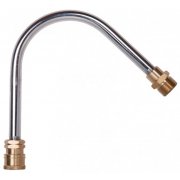
Whirl-A-Ways
A Whirl-A-Way is an accessory that looks a little like a lawn mower and has two or three rotating nozzles inside. They are available in sizes from 12” to 30” and excel at cleaning large flat areas quickly.
Hot Water Pressure Washers
Hot water pressure washers are mainly commercial machines with built-in water heaters. The cleaning effect of the machines is considerably better than a cold water machine with comparable PSI and LPM because hot water simply cleans more effectively than cold water. Hot water pressure washers break down and remove dirt and grime faster than cold water pressure washers, often eliminating the need for expensive chemicals. Do not feed hot water into a normal cold water pressure washer pump. The heat will damage seals and o-rings.
Detergents
Detergents can greatly increase the speed of cleaning and help remove tough stains. Most pressure washers come equipped with a venturi tube that will draw in the detergent from a bottle or pail and add it to the water stream. The detergent should be first applied with a low-pressure spray, given some time to do its work to break down the dirt, and then washed off with a normal high-pressure spray.
Choosing the Right Pressure Washer
When it comes right down to it, you need to buy a pressure washer that fits your application. There are many different types of pressure washers—from very low-end machines to extremely powerful industrial machines. Before you buy a machine you need to sit down and ask yourself these questions:
-
“How will I use a pressure washer?”
-
“How often will I use a pressure washer?”
If you are a homeowner, you will probably use a pressure washer for less than 50 hours per year. In this case, getting a machine rated for 500 hours will last you up to 10 years if properly maintained. However, if you are using it on the job, you will want something rated for 2,000 hours or more. If time is important to you, buy as big a pressure washer as you can justify. A 13 HP petrol pressure washer will clean your driveway about 10 times faster than a small electric unit. It will also last longer because it doesn’t have to run nearly as long to do the job. Finally, plan in advance what attachments you will want in the future and make sure that the pressure washer you buy has enough power to support them.
Have you still got questions? Why not give us a call/email so we can go through it with you?
